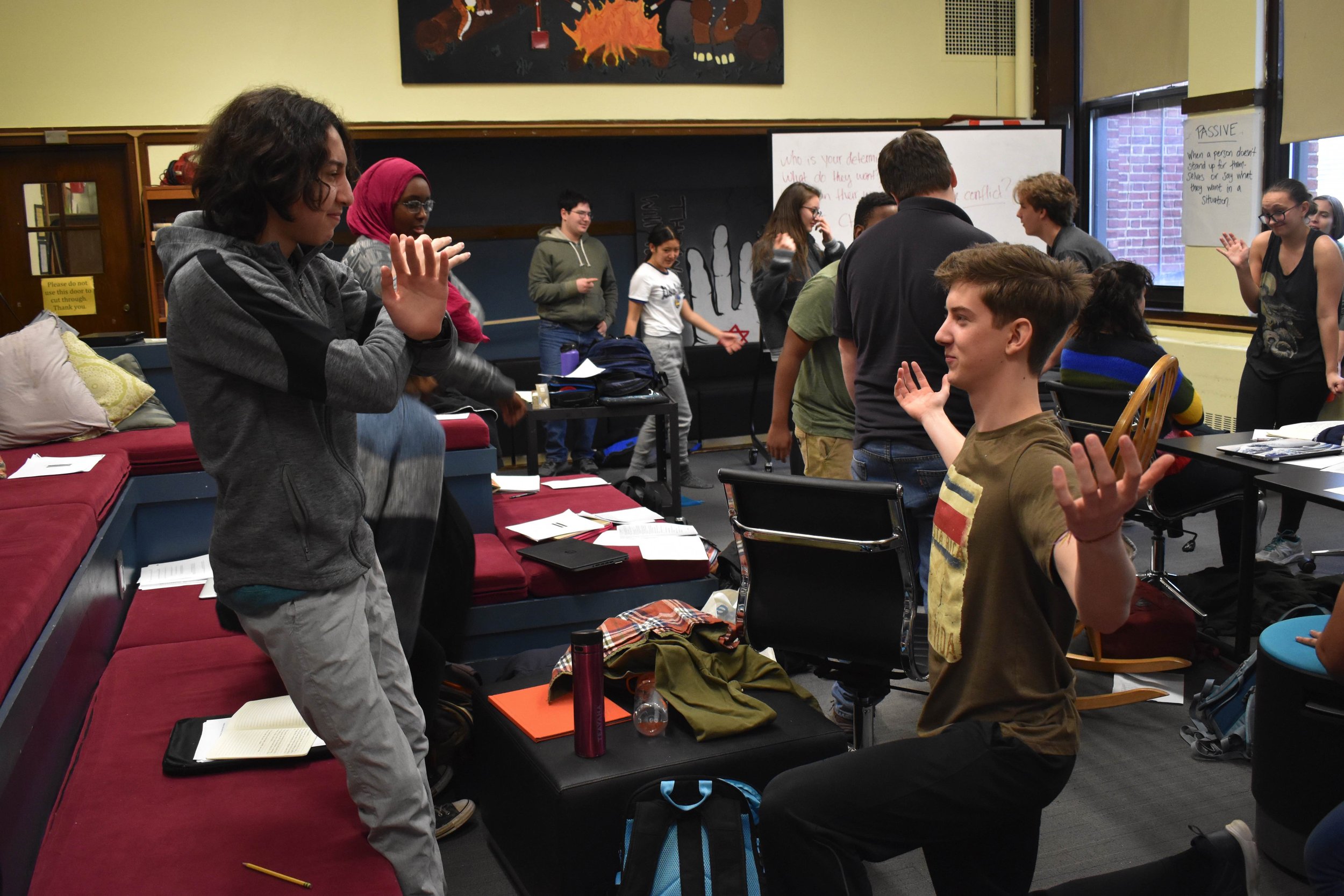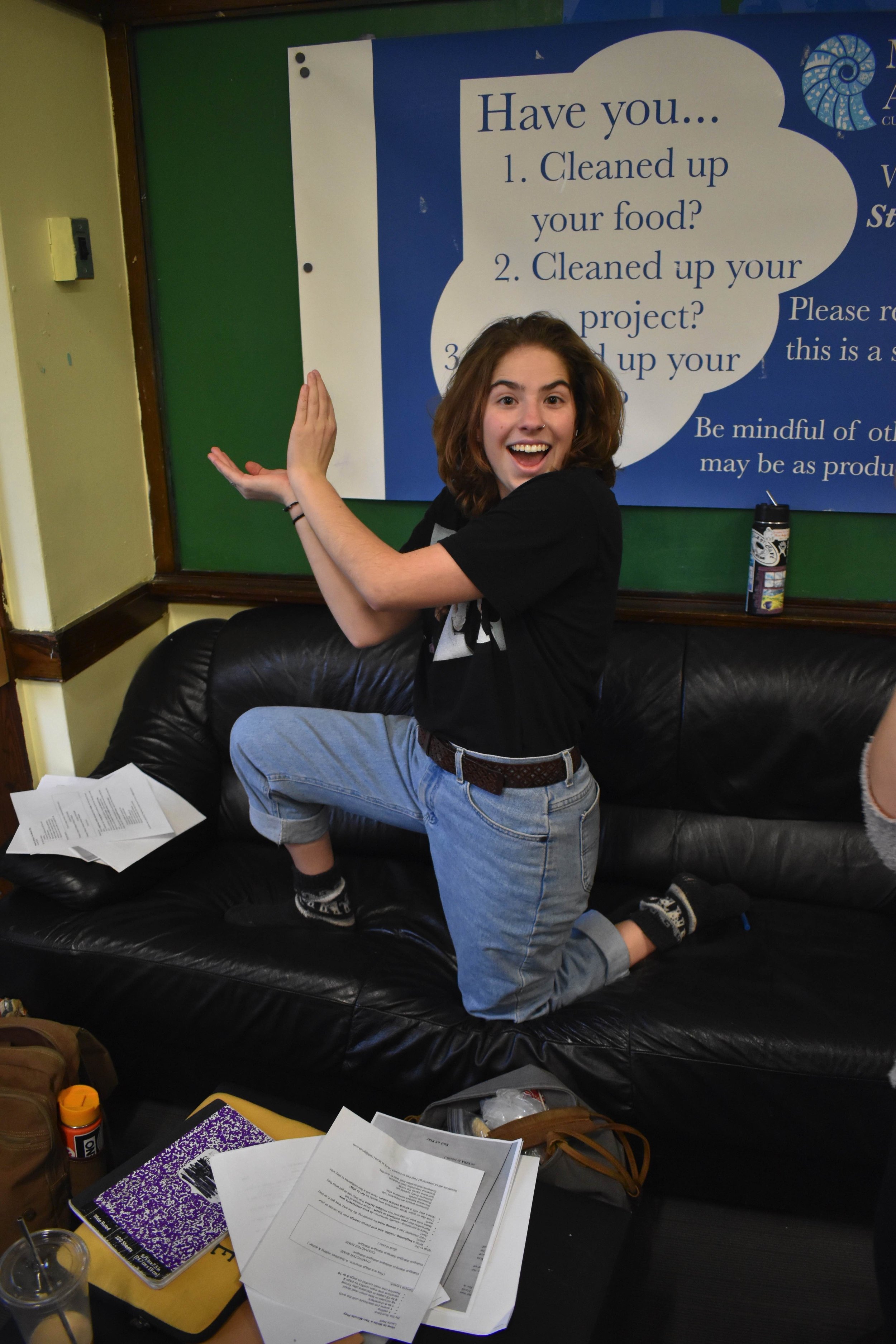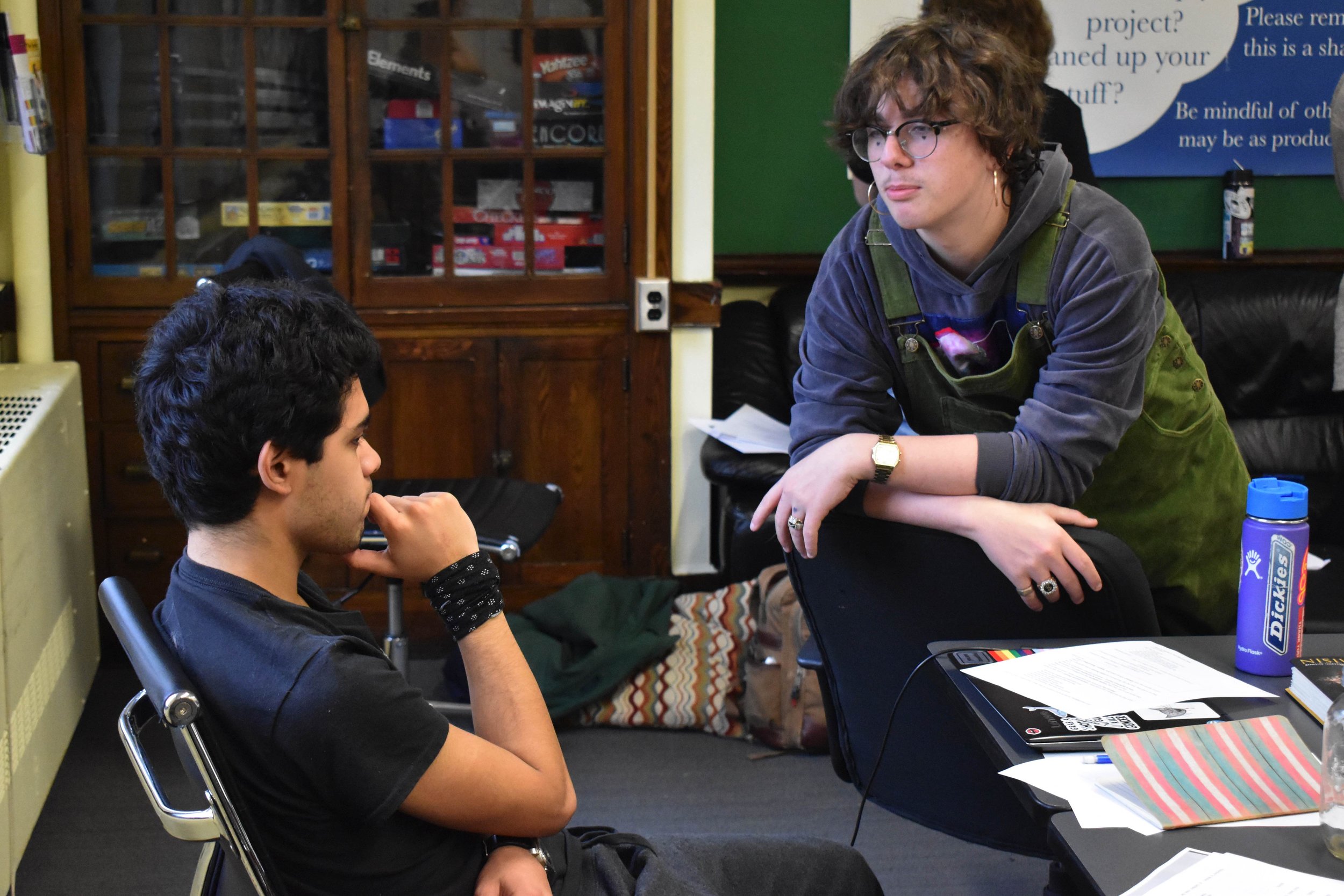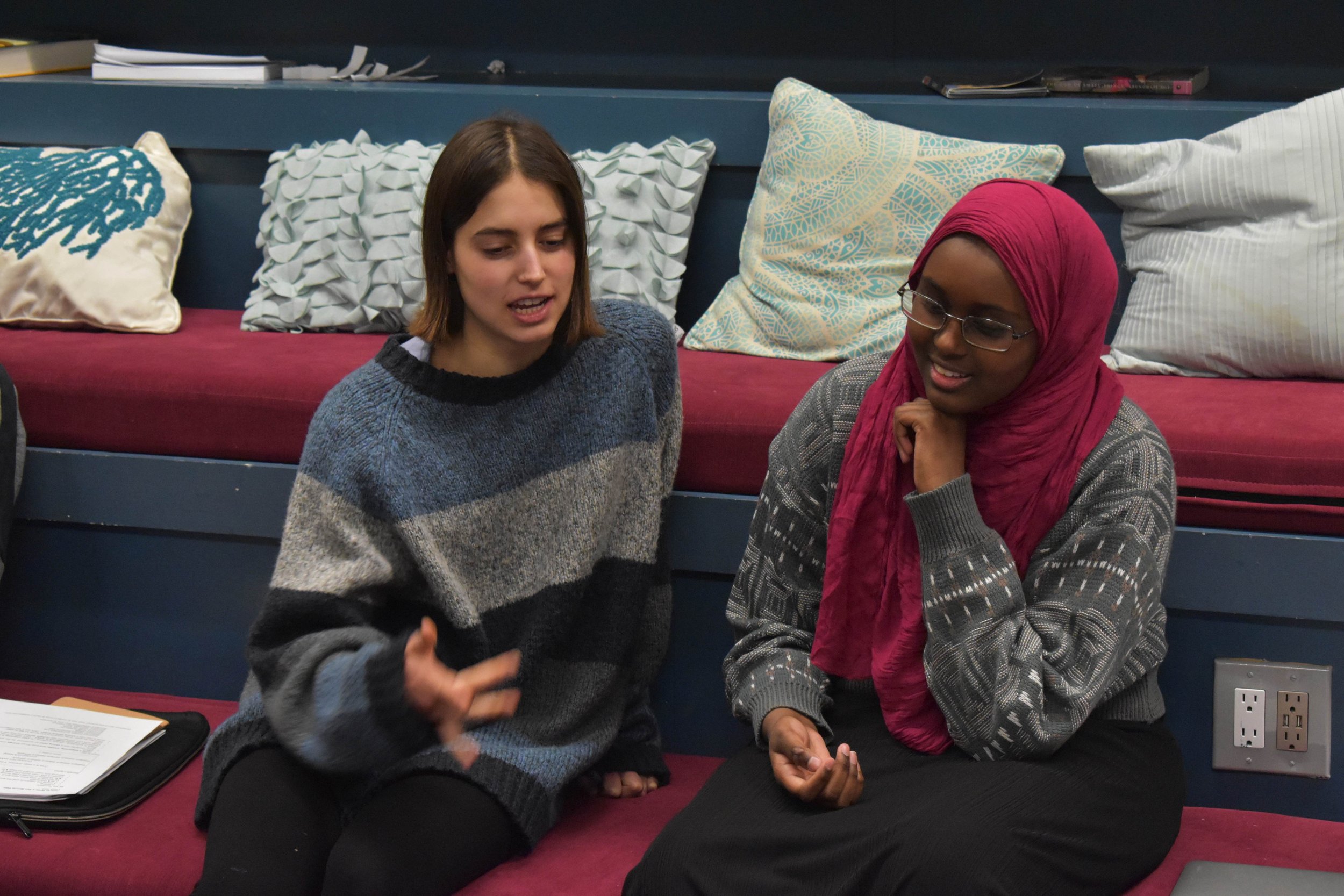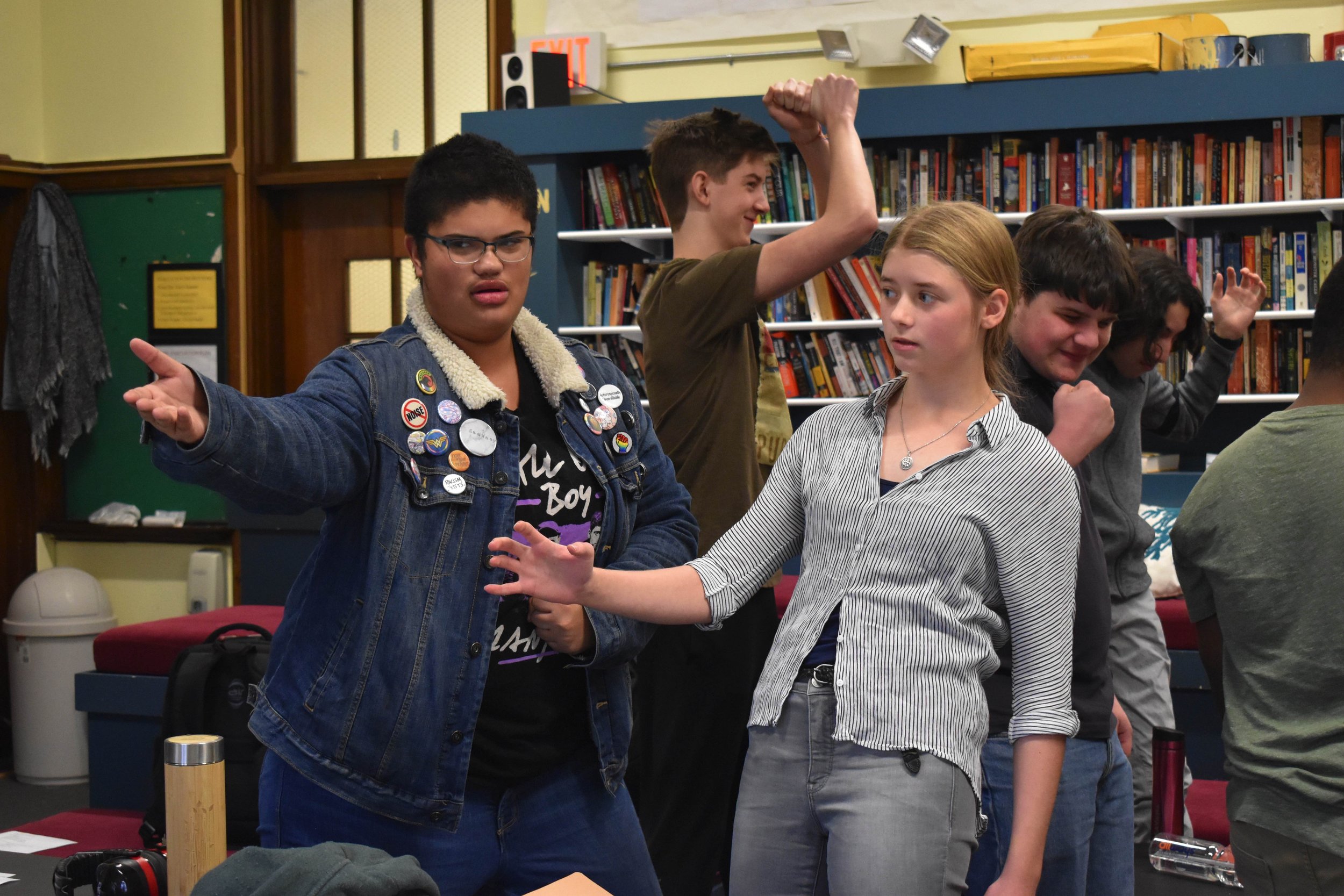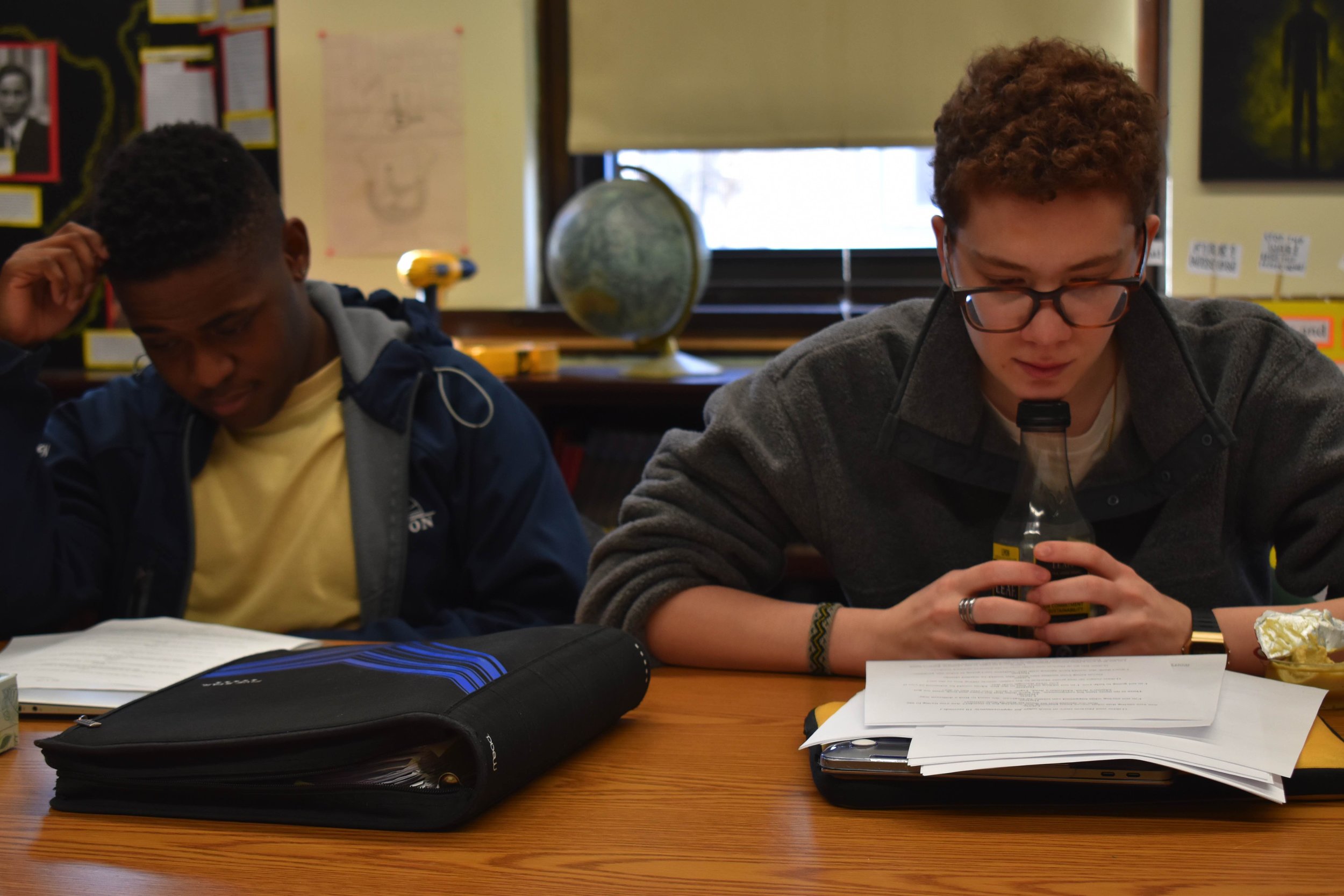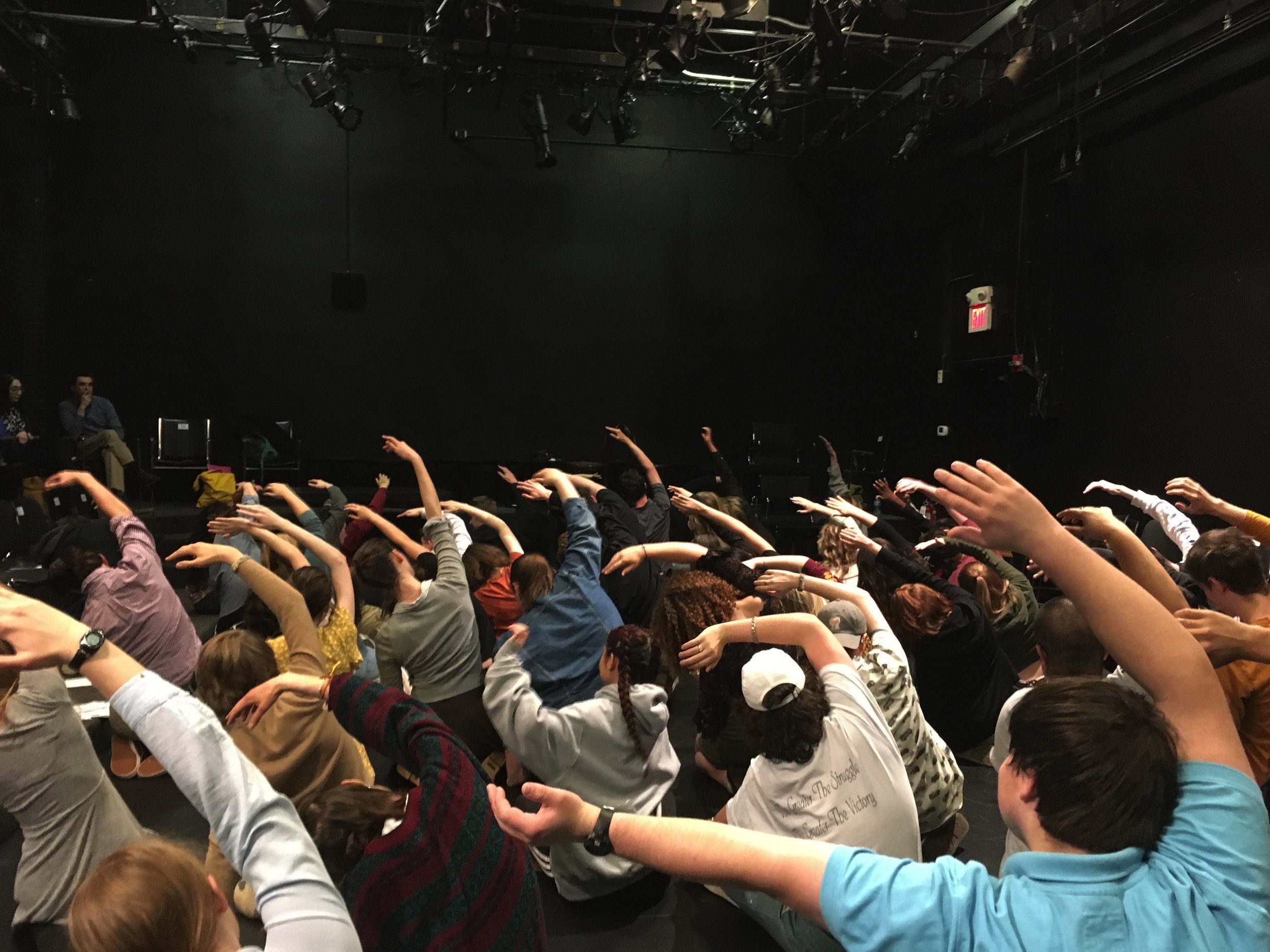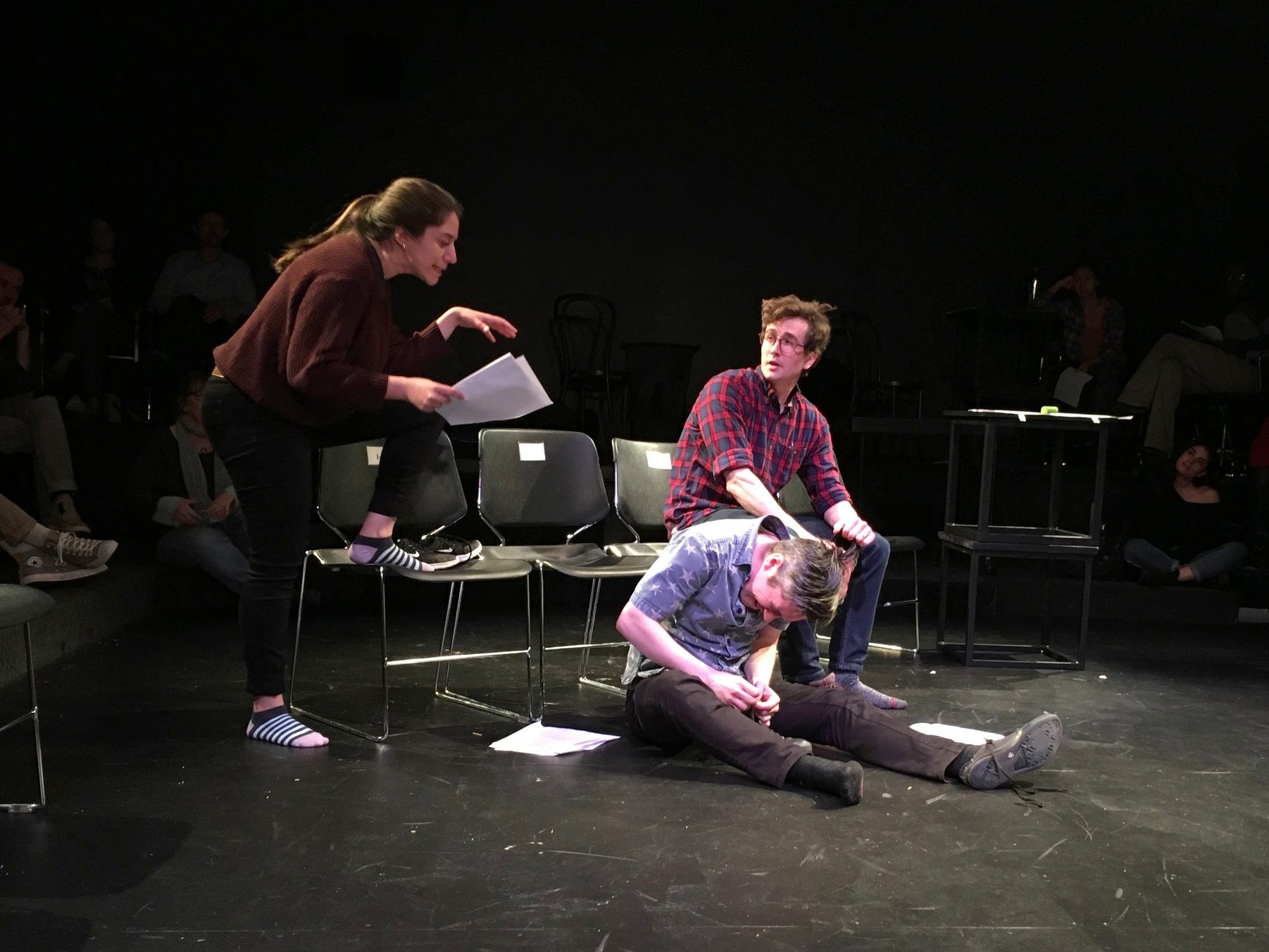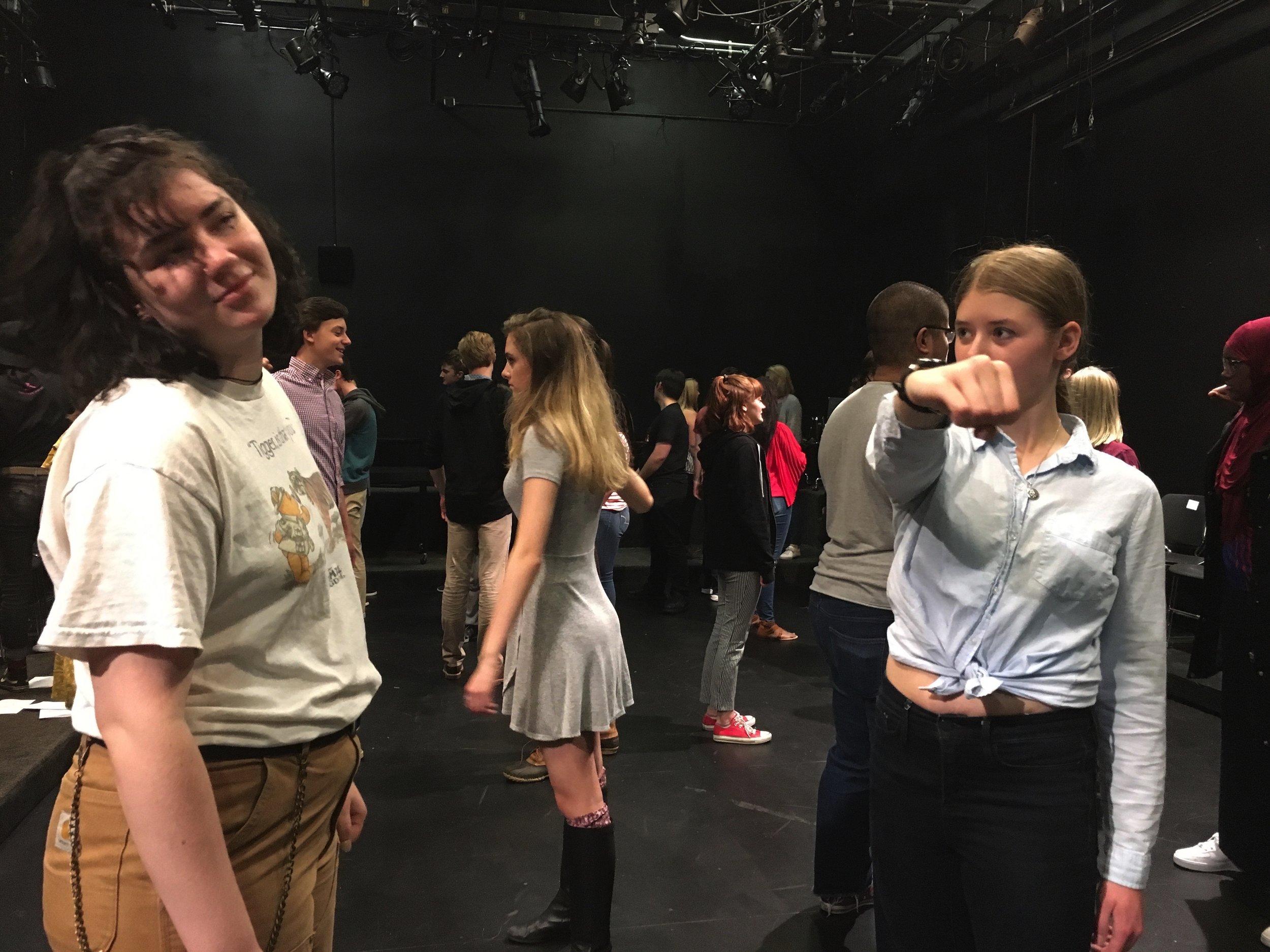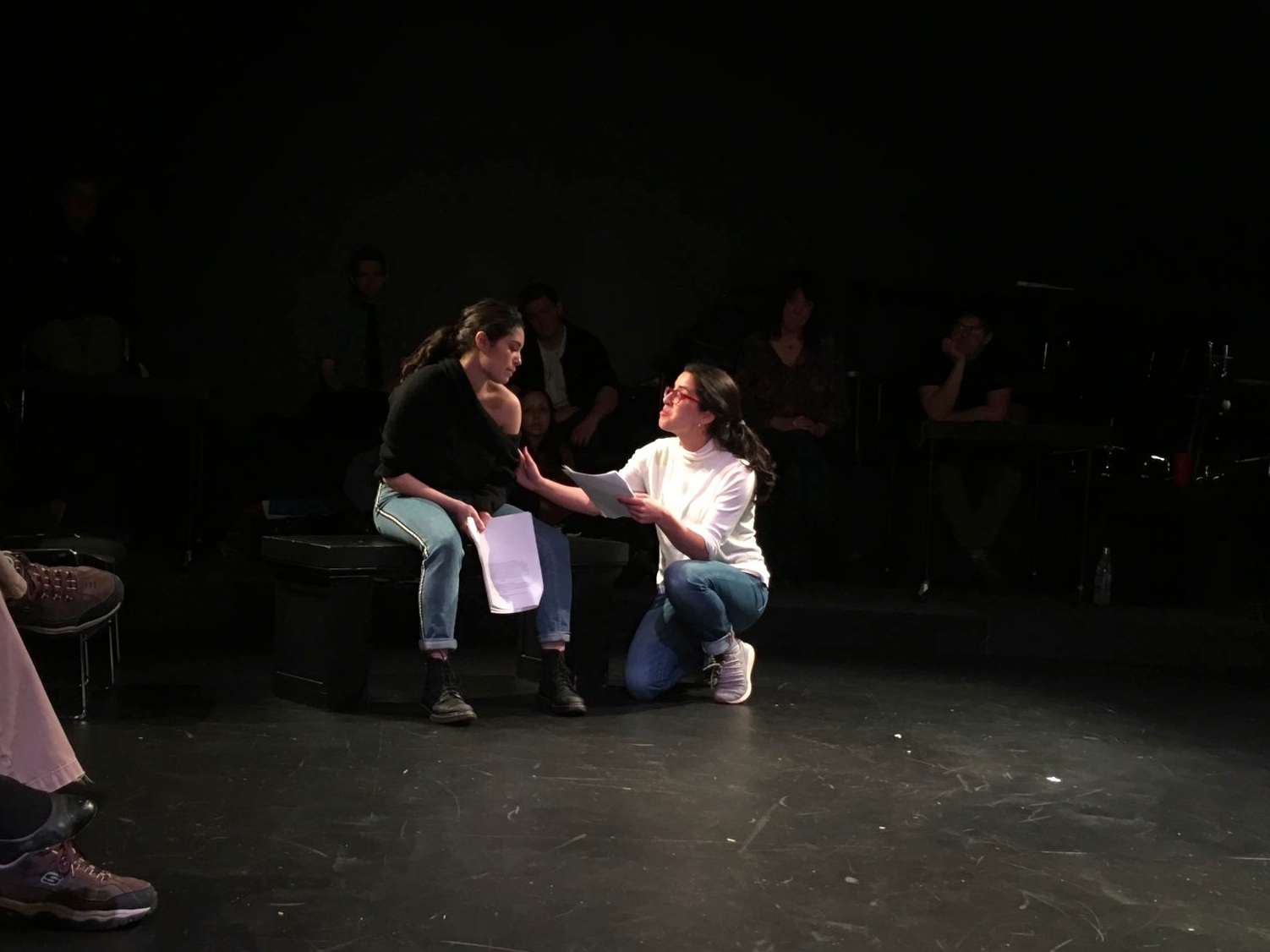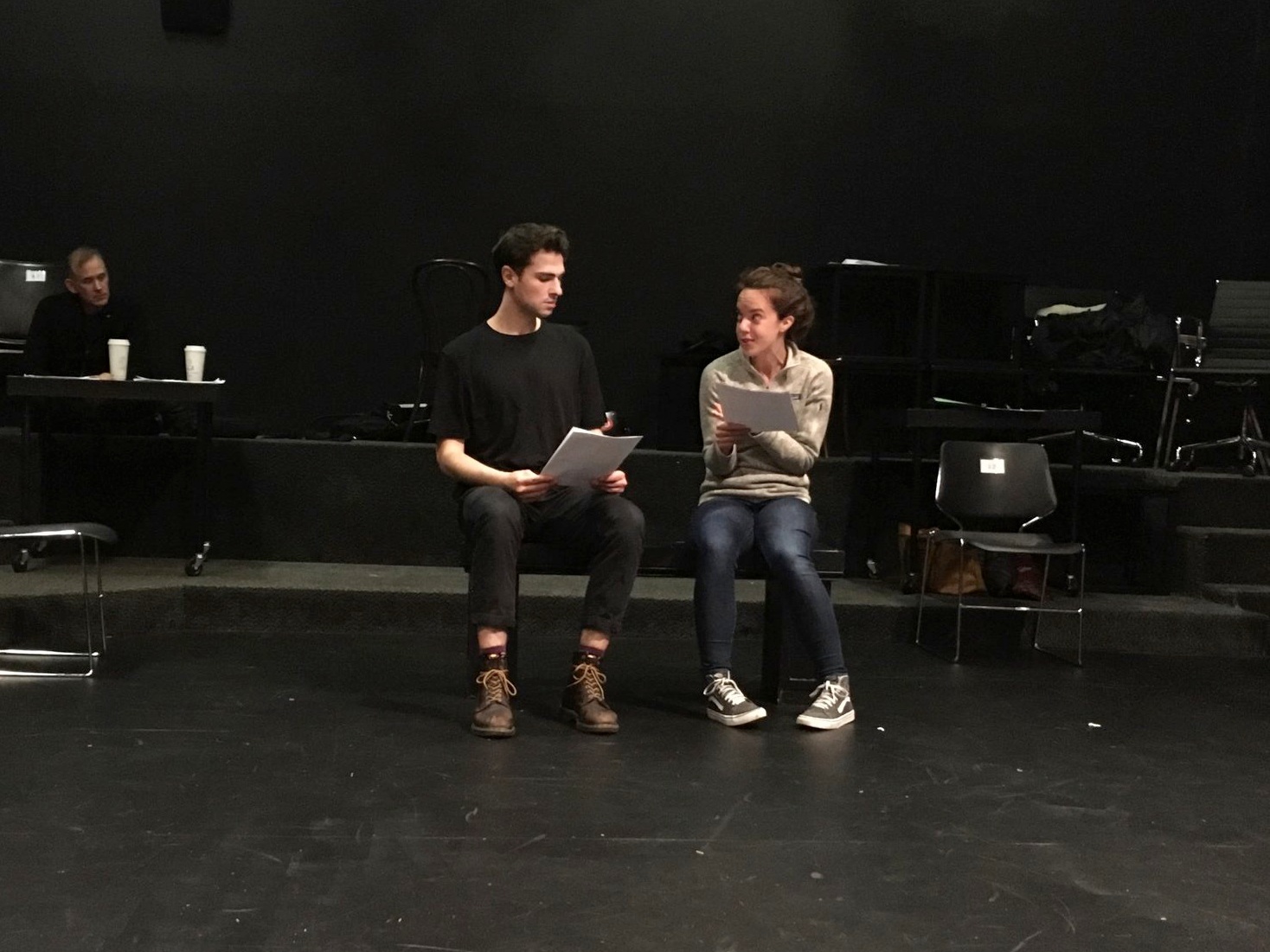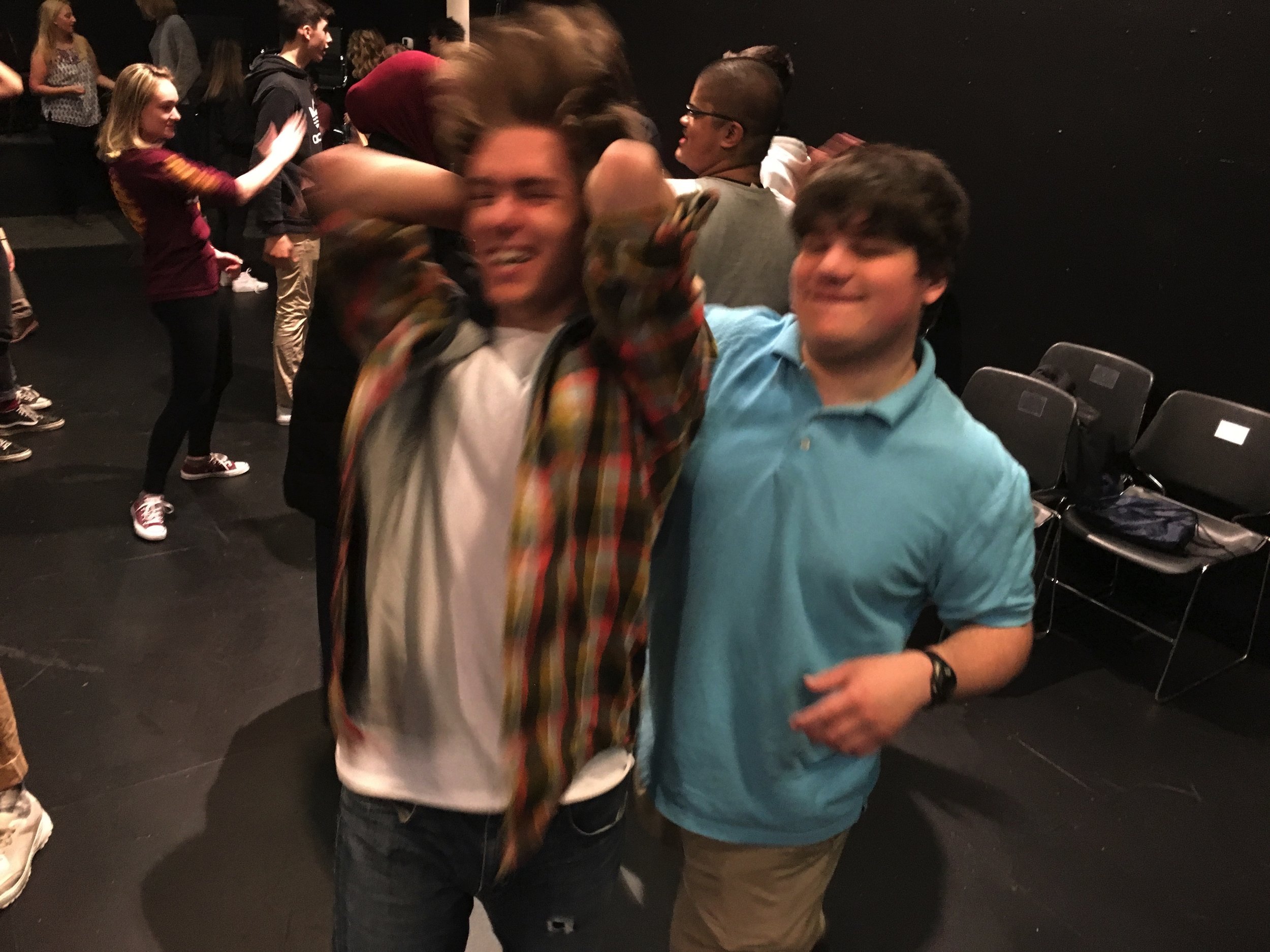From Kushner to Ibsen: Meridian’s Division 4 Writes 10 Minute Plays
By Nadia, a Division 4 student
During the second trimester of this year, Division 4 students spent all of their Humanities class time writing plays, workshopping plays, reading plays, and talking about plays. As someone who loves acting, especially at Meridian, I was really excited about a class dedicated to playwriting. However, by the end of the term I enjoyed it even more than I’d expected.
Throughout the trimester, we each wrote one 10-minute play, each of which would eventually be submitted to Boston University’s Playwrights’ Theatre Festival. Two plays from our class would be put on at the festival, and one would be cold read. A local playwright and Boston University professor, Laura J Neill, visited to help us get started on our plays, answer questions, and workshop our scenes.
On our very first day with Laura, I didn’t know what I wanted to write my play about, but we jumped right into this process, which felt intimidating since I hadn’t done much creative writing in the past. We began by reading a selection of 10-minute plays to understand how writers work effectively in such a short span of time. We learned that usually, these plays use just a few characters, take place in just one location, and only explore one conflict with one inciting event. Laura then led us in a variety of exercises, including “character statues,” where we used our classmates to physically portray our characters. We also learned about the importance of asking the question “What do my characters want?” At the end of the class, we wrote the first five lines to our play. This was a scary step for me. I felt like I had just gotten to know my character, and it was already time to start writing. Of course, the process eventually got easier, and I would wind up drastically changing those first five lines.
Over the next few weeks, we thoroughly workshopped everyone’s 10-minute plays using the Liz Lerman method. Using this technique, one students presented their play and their classmates read it aloud. Afterward, we spent a few minutes sharing things that we found striking or moving, but being careful not to say “I like.” Next, we asked questions of the playwright, such as, “What guided your choice to have so many pauses?” or “What does this character want from the other character?” Then, the playwright had time to ask everyone else questions, like, “At what point in my play did you understand that these two characters were siblings?” Both of these steps help the playwright to think more deeply about their choices and ensure that those choices are working. In the final step, the class was allowed to give feedback, but only after asking permission. For example, a student might say, “I have an opinion on your first line. Would you like to hear it?” to which the playwright could say “Yes” or “No.” This format took some time to get used to, but ultimately I found it so much more helpful than people haphazardly saying, “I like this,” or “I don’t like this.”
I loved writing my 10-minute play – so much so that it didn’t ever feel like homework, but more like work that I really wanted to do – along with the process of getting feedback to deepen my understanding of my characters and their objectives. I also really enjoyed reading a variety of plays, which helped me understand how I wanted my dialogue to flow. I am so grateful for this class and for the BU Playwrights’ Festival, because I would never have tried playwriting otherwise.
As an actor, I originally found it stressful and unsatisfying to not be able to say the words I had written out loud. However, when my play was selected to be performed at the festival, I found it even more powerful to hear the actors’ interpretation of my script. Watching them demonstrated one of the things I love most about theater: when it works, it’s not because of the writer, the actors, or any other individuals, but because of how their skills, insights, and talents converge.

